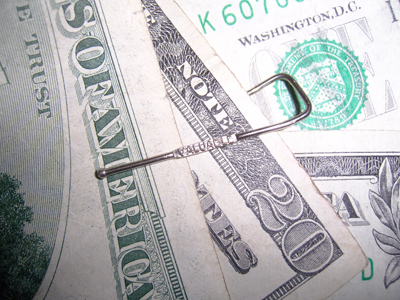All Nonfiction
- Bullying
- Books
- Academic
- Author Interviews
- Celebrity interviews
- College Articles
- College Essays
- Educator of the Year
- Heroes
- Interviews
- Memoir
- Personal Experience
- Sports
- Travel & Culture
All Opinions
- Bullying
- Current Events / Politics
- Discrimination
- Drugs / Alcohol / Smoking
- Entertainment / Celebrities
- Environment
- Love / Relationships
- Movies / Music / TV
- Pop Culture / Trends
- School / College
- Social Issues / Civics
- Spirituality / Religion
- Sports / Hobbies
All Hot Topics
- Bullying
- Community Service
- Environment
- Health
- Letters to the Editor
- Pride & Prejudice
- What Matters
- Back
Summer Guide
- Program Links
- Program Reviews
- Back
College Guide
- College Links
- College Reviews
- College Essays
- College Articles
- Back
Should We Raise the Minimum Wage?
Whether the federal minimum wage should be raised is a topic debated among many types of people, and one affecting many more. Some say that full-time workers paid the minimum wage do not have enough money to live on, and that it will help decrease income inequality. Others say that income inequality and prosperity are not the same thing, that jobs would be lost, and businesses would go out of business. Raising the minimum wage is not the best way to help minimum wage workers.
Giving minimum wage workers a higher salary than their current $7.25 would help them, but there are more effects than that. Businesses would have to pay more for their employees, and those that do not gain a lot of profits would have to make up for it somehow, or go out of business, especially if people stopped buying their products. This would cause everyone that depended on that business for their job to have no stable source of income, or only unemployment compensation, instead of a small salary. Would that make them feel worse? How would they feel if they had to ask their family or their friends to support them, instead of staying independant? The reason for raising the minimum wage is to avoid this, right? Some businesses would try to avoid this by firing some of their employees, which is a similar situation. The Congressional Budget Office did a study, and found that if the minimum wage was raised to $15 and hour, then millions of jobs could be lost. Also, the workers who did keep their jobs would get less government support, which may make a bigger impact than they thought.
Raising the minimum wage would also make products more expensive. “Shops, restaurants, and other businesses that employ low-wage workers could charge their customers more to make up for higher labor costs.” - Newsela: With minimum wage rising, is America ready for $15-an-hour working world? This could speed up inflation so much that the value of the amount that the minimum wage workers goes back down.
Some say that raising the minimum wage will help decrease income inequality, but it is not necessarily true that income inequality is harmful to an economy. Income equality is getting paid the same amount as others. Getting paid enough to live on is not the same thing as that. “In the United States, the gap between the rich and poor is growing, but poverty rates are falling. China’s income gap has grown wider than America’s, even as China’s economy has grown and millions of Chinese have been lifted out of poverty.” - Newsela: Issue Overview: Income Inequality. The gap between the rich and the poor is almost always growing, and it is not as harmful as it seems.
The topic of raising the minimum wage has a convincing argument on both sides. Most of the reasons against raising the minimum wage are products of speculation, but this is a very serious topic, because the livelihood of millions are at stake. Raising the minimum wage will help some workers, but other people will be affected negatively. The solution could come up where no one expected, or maybe it will never be found. Most people get paid above the minimum wage. What is keeping the minimum wage workers from getting a raise on their own?

Similar Articles
JOIN THE DISCUSSION
This article has 0 comments.
